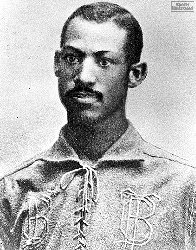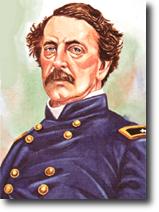|

FLEET WALKER

Moses Fleetwood Walker appeared to have it all: talent, intelligence, good looks. If he had been fortunate enough to play ball in the late 20th century he could have become one of the game’s greatest ambassadors. But in late-19th century America, assets such as Walker possessed didn’t count for much if the bearer was not white. While the college-educated Walker wasn’t the first African-American to play baseball professionally (Bud Fowler bears that distinction), he was the first known black major leaguer, appearing for the American Association Toledo Mud Hens in 1884.


"Bud Fowler, 1878"

A catcher, Fleet Walker batted .263 in forty-two games for the Mud Hens, not eye-popping numbers to be sure, but twenty-three points above the league average. His thirty-seven passed balls as a catcher were less an indication of his fielding ability, but more the result of battery mate Tony Mullane’s racism.
"[Walker] was the best catcher I ever worked with, but I disliked a Negro and whenever I pitched to him I used to pitch anything I wanted without looking at his signals."
Incidents of racism plagued Walker throughout the season. Finally, prior to an exhibition game with the visiting Chicago White Stockings, Chicago manager Cap Anson refused to allow his team to take the field against the black Walker, uttering his now famous ultimatum, "Get that nigger off the field."



Shortly thereafter league officials banned blacks from professional play, a situation that would not be rectified until Jackie Robinson joined the Brooklyn Dodgers in 1947. Fleet Walker played minor league ball for several years after his big league banishment.
In his later life Walker owned and managed a theater and opera house and published the black newspaper The Equator. He died at the age of 67 in 1924.
David Zang’s fine book, Fleet Walker’s Divided Heart: The Life of Baseball’s First Black Major Leaguer, appeared in 1995, generating renewed interest in Walker’s career. His brother, Welday, also appeared briefly for the Mud Hens in 1884.
"Used by permission of the author
and The Baseball Reliquary, Inc."


Abner Doubleday
Abner Doubleday: just not interested in Baseball.

|


![]()



![]()

![]()